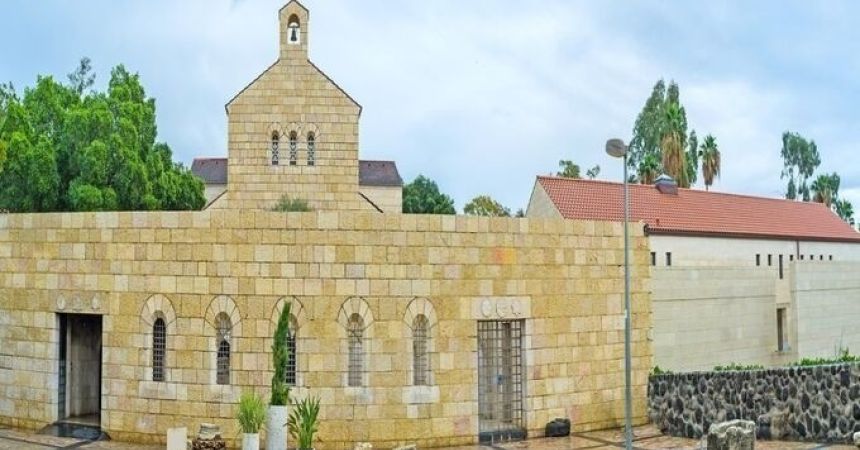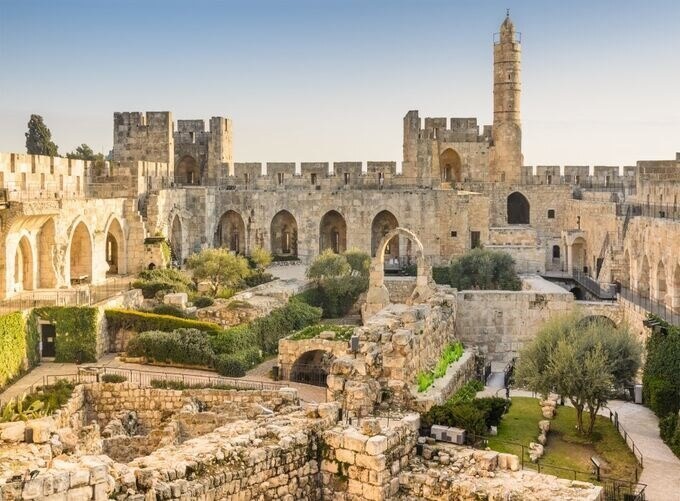
Israel: Where History Meets Modernity
Israel, a small but diverse country in the Middle East, is a land of ancient history, vibrant cultures, stunning landscapes, and modern innovations. From the bustling streets of Tel Aviv to the sacred sites of Jerusalem, the serene beaches of the Mediterranean to the rugged beauty of the Negev Desert, Israel offers a unique blend of experiences for every type of traveler. This comprehensive guide explores the best of Israel, covering its history, key destinations, cultural highlights, culinary delights, and practical travel tips.
Discovering Israel: A Comprehensive Travel Guide
Ancient Roots
Israel's history dates back thousands of years, with archaeological evidence showing human settlements as far back as the Paleolithic era. The land of Israel is central to the Jewish, Christian, and Islamic faiths, each of which has left an indelible mark on the region's history and culture.
Biblical Era
The biblical era is pivotal in Israel's history, marked by the establishment of the ancient Kingdom of Israel. Key figures like King David and King Solomon played significant roles during this period, with Jerusalem becoming the capital and spiritual center.
Roman and Byzantine Periods
The Roman conquest in 63 BCE led to significant changes, including the destruction of the Second Temple in 70 CE, which marked a major turning point in Jewish history. The Byzantine Empire later ruled the region, leaving behind notable Christian sites.
Islamic and Crusader Periods
In the 7th century, Islamic Caliphates conquered the region, bringing significant cultural and architectural changes. The Crusader period followed, marked by religious conflicts and the construction of numerous fortifications and churches.
Ottoman Rule to Modern Statehood
The Ottoman Empire controlled the region from 1517 until the end of World War I, after which it came under British mandate. In 1948, the State of Israel was established, leading to ongoing conflicts and the dynamic, modern nation we see today.
Top Destinations in Israel
Jerusalem: The Eternal City
Jerusalem, one of the oldest cities in the world, holds deep religious significance for Jews, Christians, and Muslims.
Old City
- Western Wall: The holiest site in Judaism.
- Church of the Holy Sepulchre: Believed to be the site of Jesus' crucifixion and resurrection.
- Dome of the Rock: An iconic Islamic shrine on the Temple Mount.
Modern Jerusalem
- Yad Vashem: Holocaust memorial museum.
- Israel Museum: Home to the Dead Sea Scrolls.
- Machane Yehuda Market: A bustling market offering fresh produce, spices, and local cuisine.
Tel Aviv: The Vibrant Metropolis
Tel Aviv is known for its modernity, beaches, nightlife, and cultural scene.
Beaches
- Gordon Beach: Popular for sunbathing and water sports.
- Frishman Beach: Central and lively.
Culture and Nightlife
- Rothschild Boulevard: Famous for its Bauhaus architecture and cafes.
- Carmel Market: Tel Aviv’s largest market.
- Florentin: Known for its street art and nightlife.
The Dead Sea: Nature’s Miracle
The Dead Sea, the lowest point on Earth, is renowned for its mineral-rich waters and therapeutic mud.
Activities
- Floating: Experience the buoyant waters.
- Mud Baths: Apply the mineral-rich mud for its health benefits.
- Masada: Ancient fortress with stunning views.
The Negev Desert: Rugged Beauty
The Negev Desert covers more than half of Israel's land area and offers unique landscapes and adventures.
Highlights
- Makhtesh Ramon: The world’s largest erosion crater.
- Ein Avdat: Beautiful canyon with waterfalls.
- Timna Park: Ancient copper mines and unique rock formations.
Galilee and the Golan Heights: Nature and History
Northern Israel is known for its lush landscapes, historical sites, and religious significance.
Key Sites
- Sea of Galilee: Biblical sites like Capernaum and the Mount of Beatitudes.
- Nazareth: Known for the Basilica of the Annunciation.
- Golan Heights: Hiking trails, wineries, and historical sites.
Must-See Sites in Israel
Religious Significance
Israel is a focal point for Judaism, Christianity, and Islam, each contributing to the country's rich cultural tapestry.
Jewish Sites
- Western Wall: A place of prayer and pilgrimage.
- Safed: A center of Kabbalah and Jewish mysticism.
Christian Sites
- Church of the Holy Sepulchre: Key site for Christian pilgrims.
- Nazareth: The hometown of Jesus.
Islamic Sites
- Al-Aqsa Mosque: One of Islam's holiest sites.
- Dome of the Rock: Important Islamic shrine.
Festivals and Events
Israel hosts numerous festivals throughout the year, celebrating its diverse cultural and religious heritage.
Jewish Festivals
- Passover: Celebrating the Exodus from Egypt.
- Yom Kippur: The Day of Atonement.
- Hanukkah: The Festival of Lights.
Christian Festivals
- Easter: Celebrated with processions and services.
- Christmas: Particularly notable in Bethlehem and Nazareth.
Islamic Festivals
- Ramadan: A month of fasting and prayer.
- Eid al-Fitr: Celebrates the end of Ramadan.
Art and Music
Israel has a thriving arts scene, from contemporary art galleries to classical music performances.
Key Venues
- Tel Aviv Museum of Art: Extensive collections of modern and contemporary art.
- Habima Theatre: Israel’s national theater in Tel Aviv.
- Jerusalem Symphony Orchestra: Renowned for its classical music performances.
Israel's Culinary Treasures
Traditional Israeli Cuisine
Israeli cuisine is a melting pot of flavors, influenced by Jewish diaspora traditions, Middle Eastern, and Mediterranean cuisines.
Must-Try Dishes
- Hummus: Creamy chickpea dip.
- Falafel: Deep-fried chickpea balls.
- Shakshuka: Poached eggs in a spicy tomato sauce.
- Sabich: Pita sandwich with fried eggplant and hard-boiled eggs.
- Jachnun: Yemenite Jewish pastry.
Markets and Street Food
Markets are a vital part of Israeli culinary culture, offering fresh produce, spices, and street food.
Notable Markets
- Carmel Market (Tel Aviv): Fresh produce, spices, and street food.
- Machane Yehuda Market (Jerusalem): Lively market with a wide range of foods.
- Levinsky Market (Tel Aviv): Known for its spices and delicacies.

Fine Dining
Israel has a burgeoning fine dining scene, with many restaurants offering innovative cuisine.
Notable Restaurants
- Machneyuda (Jerusalem): Creative dishes and lively atmosphere.
- Ouzeria (Tel Aviv): Mediterranean-inspired dishes.
- Taizu (Tel Aviv): Asian-Mediterranean fusion.
Essential Israel Travel Tip
Getting Around
Israel has an efficient transportation network, making it easy to travel between cities and explore remote areas.
Public Transport
- Buses: Extensive network connecting major cities and smaller towns.
- Trains: Convenient for travel along the coastal plain and to Jerusalem.
- Shared Taxis (Sheruts): Operate on fixed routes and are a good option for traveling on Shabbat.
Car Rentals
Renting a car offers flexibility, especially for exploring the Negev Desert and other remote areas.
Language
- Hebrew and Arabic: Official languages. English is widely spoken in tourist areas.
- Useful Phrases: Learning basic Hebrew phrases can enhance your travel experience.
Currency
- Israeli Shekel (ILS): The official currency.
- Credit Cards: Widely accepted. It’s good to carry some cash for small purchases.
- ATMs and Exchange: Available at airports, banks, and exchange bureaus.
Safety and Security
- Stay Informed: Keep up to date with local news and travel advisories.
- Security Checks: Be prepared for security checks at airports and public places.
- Health Precautions: Tap water is safe to drink, and health services are excellent.
Respecting Local Customs
- Dress Modestly: Particularly important in religious sites and conservative areas.
- Observing Shabbat: From Friday evening to Saturday evening, many businesses close. Plan accordingly.
- Photography: Always ask for permission before taking photos of people, especially in religious or conservative areas.
Israel Travel Itineraries
7-Day Highlights Tour
Day 1: Arrival in Tel Aviv
- Explore Rothschild Boulevard and Carmel Market.
Day 2: Tel Aviv
- Beach day and nightlife in Florentin.
Day 3: Jerusalem
- Western Wall, Church of the Holy Sepulchre, and Dome of the Rock.
Day 4: Jerusalem
- Yad Vashem and Israel Museum.
Day 5: Dead Sea and Masada
- Float in the Dead Sea and visit Masada.
Day 6: Galilee
Day 7: Departure from Tel Aviv
14-Day In-Depth Tour
Day 1: Arrival in Tel Aviv
- Relax at the beach and explore local cafes.
Day 2: Tel Aviv
- Visit the Tel Aviv Museum of Art and the old port of Jaffa.
Day 3: Caesarea and Haifa
- Explore Caesarea National Park and the Bahá'í Gardens in Haifa.
Day 4: Akko and Rosh Hanikra
- Discover the Old City of Akko and the Rosh Hanikra grottoes.
Day 5: Nazareth and Tiberias
- Visit the Basilica of the Annunciation and relax by the Sea of Galilee.
Day 6: Golan Heights
- Hike in Banias Nature Reserve and visit local wineries.
Day 7: Jerusalem
- Western Wall, Church of the Holy Sepulchre, and Dome of the Rock.
Day 8: Jerusalem
- Yad Vashem and Mount of Olives.
Day 9: Bethlehem and Jericho
- Church of the Nativity and ancient Jericho.
Day 10: Dead Sea and Masada
- Float in the Dead Sea and visit Masada.
Day 11: Ein Gedi and Negev Desert
- Hike in Ein Gedi and explore the Negev.
Day 12: Ramon Crater
- Explore the unique geological formations of Makhtesh Ramon.
Day 13: Eilat
- Relax on the Red Sea beaches and visit Coral Beach Nature Reserve.
Day 14: Departure from Tel Aviv
Israel: Where History Meets Innovation
Israel is a land of contrasts, where ancient history and modern innovation coexist harmoniously. Whether you're exploring the sacred streets of Jerusalem, relaxing on the beaches of Tel Aviv, floating in the Dead Sea, or hiking in the Negev Desert, Israel offers a wealth of experiences that cater to all interests. This comprehensive guide ensures you make the most of your visit, providing insights into the country's rich history, cultural highlights, culinary delights, and practical travel tips. Embrace the adventure and discover the many wonders of Israel.



